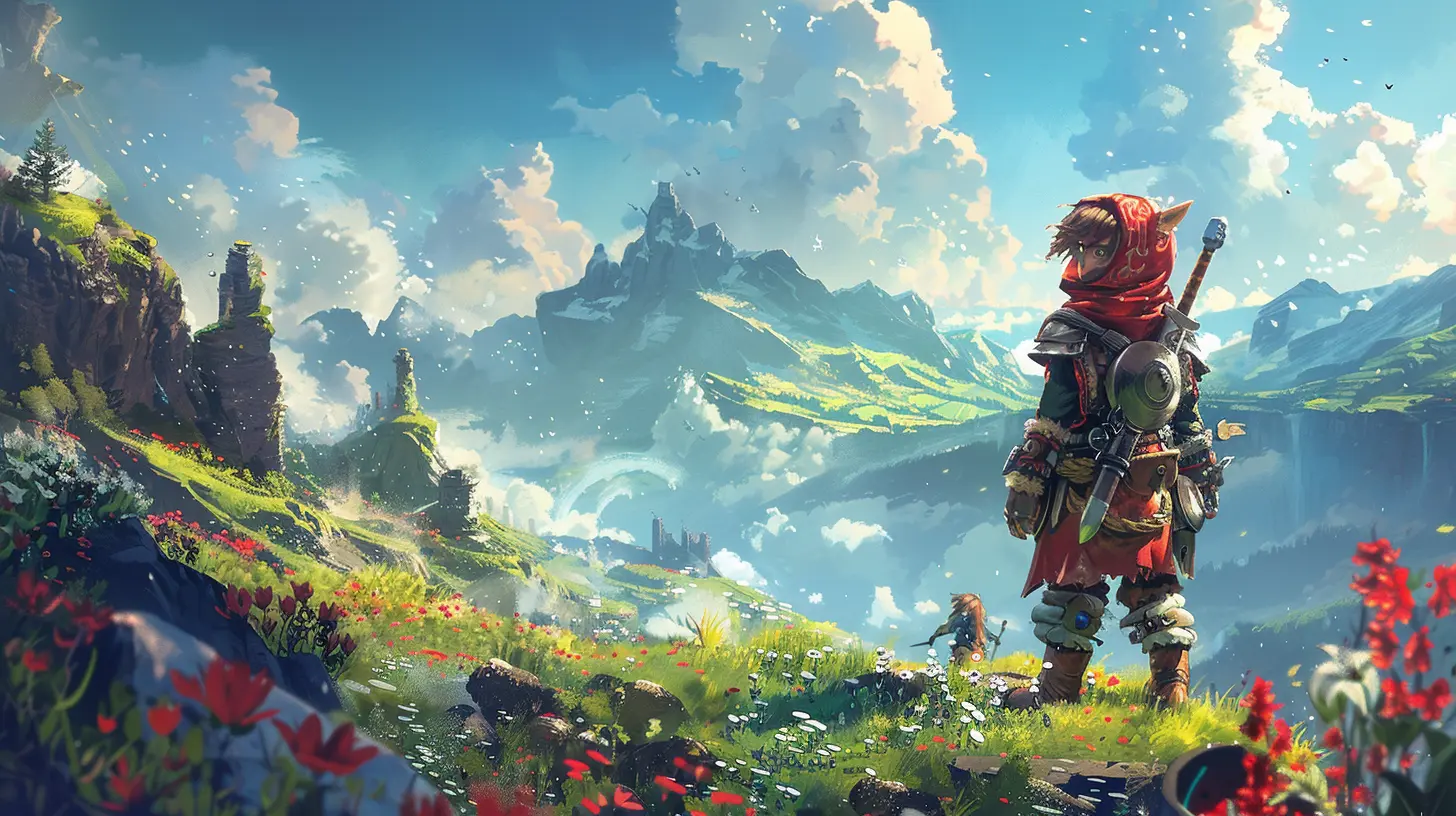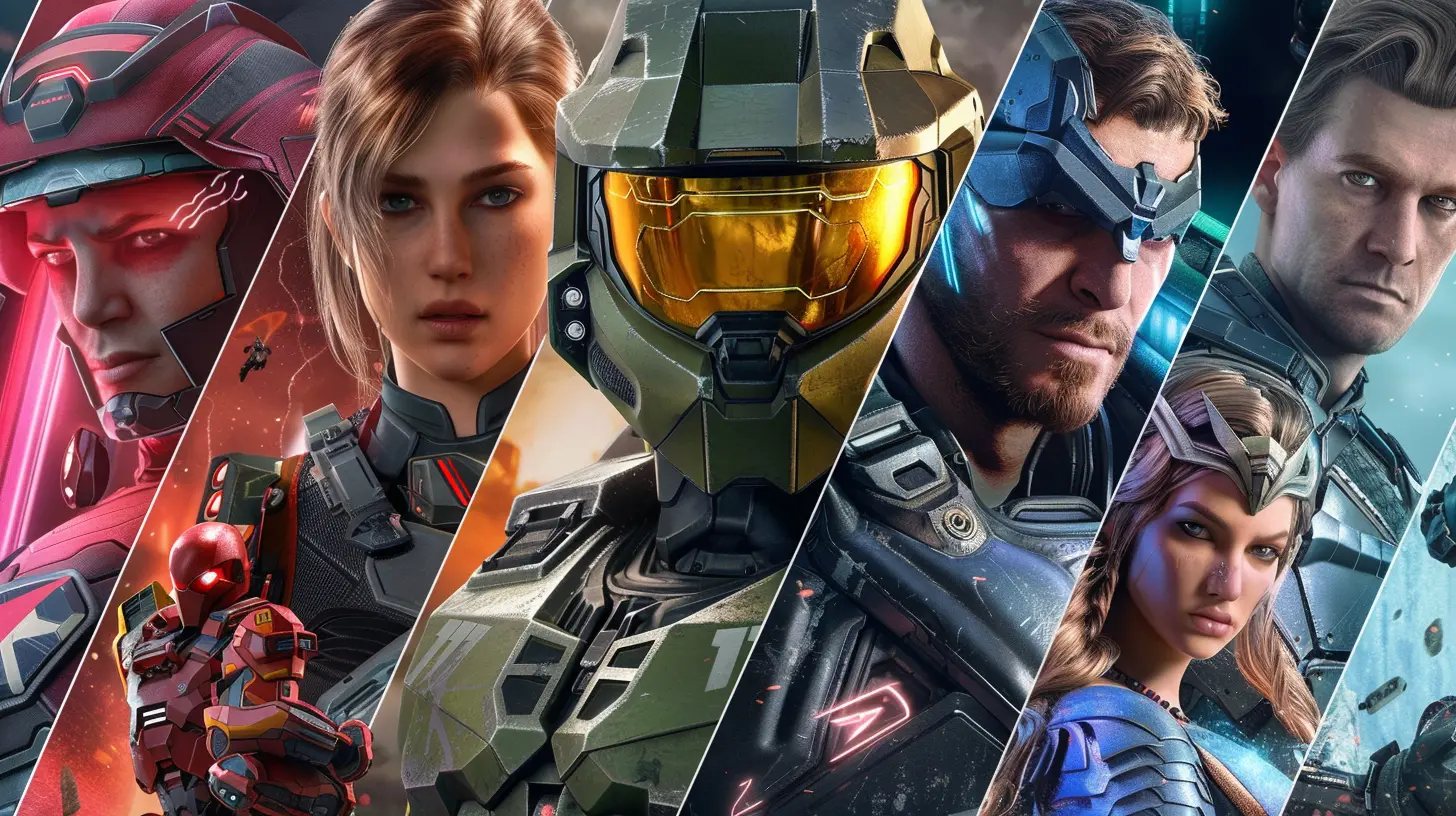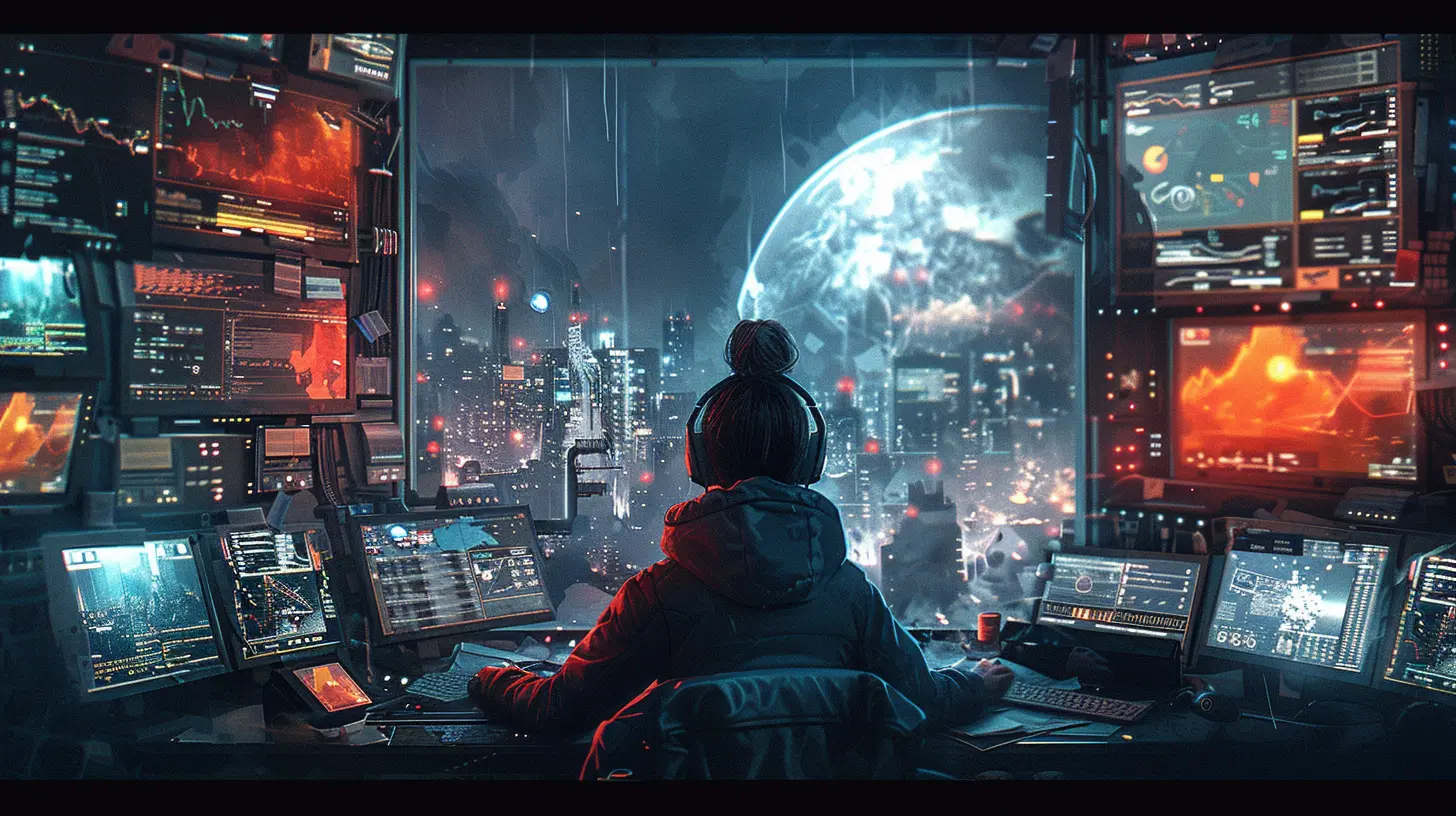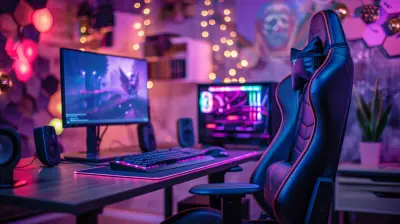Cross Platform Game Mods and Community Content
26 September 2025
Let’s be real—gaming just ain’t what it used to be. It's better. Way better.
We’ve gone from pixelated sprites to hyper-realistic worlds that look straight outta a movie. And behind the curtain, one of the most exciting developments in the gaming world isn’t just VR headsets and ray tracing—it's the rise of cross platform game mods and community content. Oh yeah, we’re diving deep.

What Exactly Are Cross Platform Game Mods?
Before we start geeking out, let’s get the basics down.Game mods (aka “modifications”) are user-generated changes to a game that tweak, add, or completely overhaul gameplay, visuals, characters—you name it. Now imagine mods that don’t play favorites. A mod made on a PC? You can use it on console or even mobile (if the devs allow it). That’s cross platform goodness.
Mods used to live in the dark corners of PC forums. Now? They're front and center, rubbing shoulders with official game updates. Games like Minecraft, Skyrim, Stardew Valley, and Among Us owe a huge chunk of their popularity to their modding communities.
So, what happens when those mods break free of platform restrictions?
You get the next big revolution in gaming.

How Mods Went Cross Platform (And Why That’s Huge)
Okay, this shift didn’t just poof into existence. For the longest time, mods were considered PC-exclusive luxuries. Consoles like PlayStation and Xbox? Not so much. Why?Because consoles are closed systems. They're like gated communities, while PCs are the wild west of creativity.
But then some brave developers decided to take a chance.
Remember when Bethesda opened the doors for console mods in Fallout 4 and Skyrim Special Edition? That was a total game-changer (literally). Xbox and PlayStation players suddenly got a taste of what modding freedom was like—and it was delicious.
Now, with the rise of more cross-platform titles, developers are designing games with shared ecosystems in mind. And that includes mod support.

The Role of Developers and Publishers
Let’s give credit where it’s due—some devs are absolute legends when it comes to supporting community content.Games like Minecraft, Terraria, and Valheim embrace modding like it’s a core pillar, not an afterthought. And then there’s Epic Games. With Fortnite Creative Mode, they're letting players shape entire experiences, share them across platforms, and even monetize them.
But not every publisher is on board. Some are terrified of what mods might do—break the game, introduce copyright headaches, or mess with online servers.
We get it. But here’s the deal: when given the tools, gamers create some of the most imaginative stuff ever seen in a game. And that’s pure gold—both creatively and commercially.

Why Community Content Matters (A Lot)
Let’s be honest. Some games would’ve died years ago without their communities. Mods and fan-made content can act like a defibrillator for a dying title. Just look at Skyrim—a game older than some TikTok users, but still thriving thanks to new quests, textures, and total conversion mods.Community content adds:
- Replayability: You’re not just stuck with what developers gave you.
- Customization: Want a pink dragon that shoots lasers out its eyes? Done.
- Community bonding: You share what you made. You download what someone else made. It’s a creative back-and-forth that just keeps growing.
- Creative learning curve: Many modders become game devs. Modding is the gateway drug to making your own games.
Honestly, it’s like building with LEGOs. Except your LEGO sets span entire galaxies.
The Rise of User-Created Marketplaces
Let’s talk money for a sec.Some platforms are now creating modding marketplaces. Think Steam Workshop, Minecraft Marketplace, or Roblox Studio. These aren’t just file-sharing hubs anymore—they’re full-blown ecosystems where creators can earn real cash.
That’s right, your funky NPC texture pack can pay for that new GPU.
Cross platform support ties right into this. The more systems your mod works on, the bigger your audience. That means more downloads, more love, and if monetized, more income.
Notable Examples of Cross Platform Mods & Community Content
Alright, let’s look at some games that are killing it in this area.1. Minecraft
We can’t talk about mods without mentioning the OG king of sandbox creativity. From shaders to full-blown adventure mods (looking at you, Pixelmon), Minecraft has featured community creations that work across PC, consoles, and mobile (via Bedrock Edition's Marketplace).2. Skyrim Special Edition
PC players still have the upper hand, sure. But Bethesda brought mod support to Xbox and PS4, allowing players to experience hundreds of community-made mods across platforms. Not all make the jump, but many do.3. Fortnite Creative Mode
You thought Fortnite was just about building towers and shooting noobs? Think again. With Creative Mode, players can make entirely new games inside Fortnite, share them across platforms, and even build a brand. It’s like Game Development Lite for the masses.4. Roblox
Whether you count it as a game or a platform, one thing is real: its community-created content spans Xbox, mobile, and PC, and its creators are rolling in digital dough. Seriously, some teenagers are earning more than CEOs.5. Halo: Master Chief Collection (MCC)
343 Industries started supporting mod tools officially, and while it’s more PC-centric, the intention is clear—more integration and mod sharing across the Xbox and PC ecosystem.Challenges Holding Back Full Cross Platform Modding
Okay, let’s not oversell it. It’s not all sunshine and rainbow-colored creepers. There are still a few dragons to slay.Compatibility Issues
Mods made for PC may not play nice on consoles. Memory limits, input changes (keyboard vs. controller), and platform restrictions can all cause problems.Quality Control
Let’s face it, not all mods are created equal. Some are brilliant; others crash your game harder than a Windows 98 blue screen.Game devs must vet community content, especially on console platforms, where user-end troubleshooting is harder.
Legal Nightmares
Mods sometimes tread on copyrighted content. Using third-party characters, music, or brands might lead to takedowns and angry letters from lawyers.That’s why some developers place tight restrictions on what mods can do—especially when they’re being shared across ecosystems.
What the Future Holds for Cross Platform Mods
The road ahead? Bright. Blinding, even.With crossplay in multiplayer games becoming the norm, it’s only logical for mods and community content to follow suit. Players want unified experiences, whether they’re on Steam Deck, PS5, or an old-school potato PC.
Cloud gaming services like GeForce NOW and Xbox Cloud will likely amplify this, making platform agnostic modding more possible than ever. Imagine loading into a modded Cyberpunk 2077 experience from your phone, complete with community-created missions and redesigned NPC AI. It’s coming.
We’re also betting on AI-assisted mod tools. These could take modding from a niche hobby to something anyone can try—with drag-and-drop interfaces, real-time previews, and automatic cross-platform compatibility.
Tips for Beginners: Getting Started with Mods (Safely)
Wanna dip your toes into the modding world? Here are some quick tips to keep you from accidentally launching a digital apocalypse:1. Back up your game files. Always. Trust us.
2. Use mod managers. Nexus Mod Manager or Vortex are excellent for PC.
3. Check compatibility. Read mod descriptions and reviews before downloading.
4. Start small. Test basic quality-of-life mods before jumping into larger overhaul packages.
5. Follow the rules. Some platforms don’t allow certain types of mods—know the TOS.
The Final Word
Whether you’re a casual gamer or a hardcore modding wizard, the world of cross platform game mods and community content is an exciting playground. It’s proof that gamers aren’t just players anymore—we’re creators, collaborators, and innovators.As bridges between platforms get stronger, the walls between systems are crumbling. The future is communal, creative, and cross-platform powered.
So go ahead. Re-skin that armor. Build a questline where chickens rule the world. Share it on every platform. And most importantly—have a blast doing it.
all images in this post were generated using AI tools
Category:
Cross Platform GamingAuthor:

Brianna Reyes
Discussion
rate this article
1 comments
Edith Kirkpatrick
Ah, cross-platform mods: where gamers unite in glorious chaos! It’s like a potluck dinner where everyone brings their quirkiest dishes—some are gourmet, others are… well, let's just say a little questionable. But hey, as long as we’re all feasting on fun, who cares if the casserole's a bit lumpy?
September 28, 2025 at 4:52 AM

Brianna Reyes
Absolutely! The diversity of cross-platform mods truly spices up the gaming experience, bringing both joy and unpredictability to the table. It's all about celebrating creativity!


